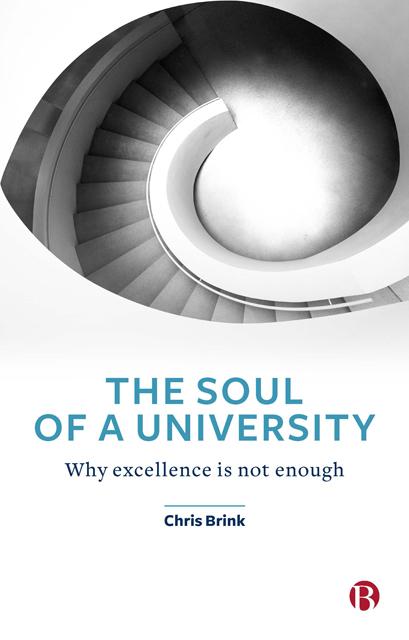Book contents
- Frontmatter
- Miscellenous Frontmatter
- Dedication
- Miscellenous Frontmatter
- Contents
- List of Illustrations
- List of Abbreviations
- Acknowledgements
- Prologue
- Introduction
- 1 The Standard Model University
- 2 Rankings and League Tables
- 3 Quality in Higher Education
- 4 Tales of Quality, Equality and Diversity
- 5 Rank Order of Worth
- 6 Linear Thinking
- 7 Another Dimension
- 8 Ideas of a Civic University
- Epilogue On the Supreme Good, by Boethius of Dacia
- Notes
- Index
3 - Quality in Higher Education
Published online by Cambridge University Press: 21 April 2023
- Frontmatter
- Miscellenous Frontmatter
- Dedication
- Miscellenous Frontmatter
- Contents
- List of Illustrations
- List of Abbreviations
- Acknowledgements
- Prologue
- Introduction
- 1 The Standard Model University
- 2 Rankings and League Tables
- 3 Quality in Higher Education
- 4 Tales of Quality, Equality and Diversity
- 5 Rank Order of Worth
- 6 Linear Thinking
- 7 Another Dimension
- 8 Ideas of a Civic University
- Epilogue On the Supreme Good, by Boethius of Dacia
- Notes
- Index
Summary
Plato, Aristotle and arête
Everyone is born either a Platonist or an Aristotelian.
Samuel Taylor Coleridge
In trying to figure out what makes a good university we should engage with the idea of the good, otherwise the question lacks content. We then seem to be confronted with an ambiguity. When we speak of ‘a good university’, do we mean good as in excellent, or good as in virtuous?
The perception of ambiguity is interesting in itself, because it indicates that we draw a distinction between excellence and virtue. This is a point worth exploring. And the exploration takes us back about two and a half millennia, to Athens.
Plato would reify the concept of the good, add capital letters, and talk about ‘The Good’ as a universal. He had quite a lot to say about it, and so it is worth saying something about him. This may seem like a mere exercise in repetition, because an entire library could be filled with opinions about Plato, coming from professionals who devote their life to the task. None the less, there is a simple fact worth pointing out, which is this: he never spoke with his own voice. He never said ‘I am Plato the philosopher, and my view is – ‘. Instead, Plato spoke through others, and mainly through the voice of Socrates.
Socrates was a real person who made a real nuisance of himself in the streets of Athens. He went around and about trying to find out what wisdom consists of. His method was to ask people who professed to know to explain it to him. He would then engage them in conversation, and through dialogue would invariably succeed in showing that the matter was in no way as simple as the self-assured interviewee had thought. In these endeavours Socrates had quite a fan club of young men from the leisured class. One of them was Plato, and Plato took it upon himself to record these Socratic dialogues.
Or so it seems. Socrates spoke a lot, but he never bothered to write anything down. And so we have a man who never spoke for himself reporting the views of a man who never wrote for himself.
- Type
- Chapter
- Information
- The Soul of a UniversityWhy Excellence Is Not Enough, pp. 101 - 152Publisher: Bristol University PressPrint publication year: 2018



